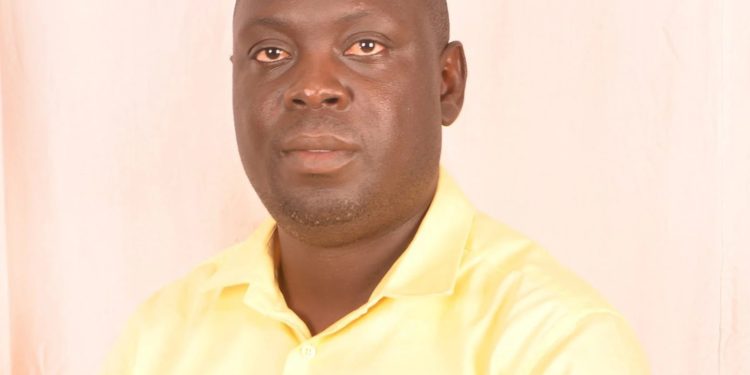There is a saying in Luganda: “Akugoba y’akuwa ekubo” (He who chases you somehow guides you on the escape route you take).
The recent decision by the World Bank to halt the issuance of new loans to Uganda due to the passage and signing of the Anti-Homosexuality Law was both a wakeup call and a blessing in disguise.
First, for some Ugandans, when President Yoweri Museveni speaks, they literally shove cotton wool in their ears while for others the message falls on rocks and among thorns as in the Biblical parable of the sower. But the pattern and tendency of his sayings being visionary and spot-on in continually getting stamped on our country’s face.
Back on June 19, 2017, the President wrote to the Minister of Finance, Planning and Economic Development, Hon. Matia Kasaija, directing that no loan request should be forwarded to Parliament without his express approval (was this an act of dictatorship? To the blind, yes, but not to woke Ugandans who understood it as an act of high level economic prudence and liberation), reasoning that this was “to avoid overburdening the state of Uganda with debts that, moreover, do not add value to the GDP of the country”.
The President further guided that for any loan to be contracted it should be for some elements of infrastructure, science and technical education, equipment for value-addition and funds for soft loans through Uganda Development Bank (UDB).
In that letter copied to, among others, the Vice President and the Speaker of Parliament, the President approved 16 loans including US$88million for tarmacking Kapchorwa-Suam road, US$45million for technical education, US$125.1 for electricity interconnection and US$11.5 for cancer treatment.
He then rejected ten loans including US%200million for “fiscal transfers and fiscal management,” whereat he queried: “Do we need a loan in order to learn how to transfer money?” I wonder what the responsible officials answered but, certainly, they were caught unawares. Another loan he rejected was US$60million for “farming on computers (ICT)” which derided as “fancy”, advising that, rather, farmers need fertilisers, good farming practices, irrigation systems, etc. Another was of US$50million for “enhancing value chain of agriculture.”
“What do these mean?” the Big Man wanted to know. ”They want a ‘consultant’ for a ‘country strategy paper’!! Really!! Do we need a strategy paper? Our Manifesto is the strategy paper”.
The total worth of the loans he shot down was over US$1.1billion (around Ushs4trillion).
In another letter dated April 4, 2020, the president rejected the loan on the “forest and resilience landscape project” and the additional financing for “intergovernmental fiscal transfers” worth US$400milliion. He noted lack of seriousness on the part of some officials and failure to use clear language in seeking for the loans.
All that money, if approved, would probably have ended up in the pockets of a few without a trace of anything added to the national economy but with all of us expected to pay back.
So, when we fell out with World Bank, it was clear that the Head-Of-State foresaw a time when there would be no other way but to become economically self-sustaining, relying on our locally generated revenues to fund our development and transformation goals or borrowing only when we must in order to fund the same critical areas.
Even without the fall out with the global lending body, it’s logical that no country should rely on foreign aid (especially loans) “forever” to grow its economy. There must be a limit to borrowing or surviving on donations. Instead, the “private sector” ought to play a leading role.
Again, the President has consistently reiterated that foreign aid and loans can be of some use if designed and executed by patriots but they are neither “decisive nor indispensable elements for our desired social-economic transformation”. He warns that they can be a source of distortion and stunted growth as notable across Africa where foreign aid pumped in hasn’t translated to much. Foreign aid generally gives a false sense of progress or relief that makes recipients forget that true wealth comes from work.
This was the second wakeup call; unless Ugandans accept that true socioeconomic transformation is homegrown, then nothing much will change in their fortunes.
On top of foreseeing these things, the President has spearheaded tailormade wealth creation programmes, namely; Parish Development Model (PDM), Emyooga, Youth Livelihood Programme (YLP), UWEP, and so on, which are in progress all over the country. As he preaches the gospel of self-sustenance at country (and continental level), he mobilises capital stimulus packages for Ugandans to join the money economy, invest and boost their ventures as part stimulating production capacity locally, to produce enough for consumption and then processing and exporting the surplus.
All economically viable countries have progressed by producing for the regional and global market as opposed to piling up nonperforming loans and receiving handouts. Therefore, the change in heart of our international partners should remind us that our transformation is our own responsibility.
Nobody owes us a future except ourselves and that’s the way we should embrace the shocks that come with being a lowly developed country vying to achieve fast-tracked transformation in an unpredictable global economy. Through frugality, optimisation of our home-generated revenue and clamping down harder on corruption, we shall make it.
The author is the Deputy Presidential Press Secretary















